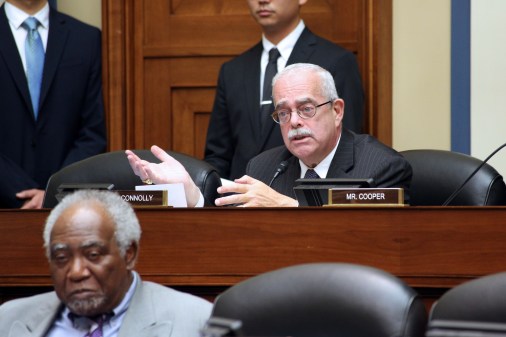Cybersecurity research institute receives $1.73B in DOD funding
The Defense Department announced Monday that it has renewed its contract with the Software Engineering Institute at Carnegie Mellon University, a federally funded research and development center chartered to study cybersecurity and software engineering.
The funding comes in the wake of the OPM hacks that compromised the personal information of 22 million Americans, prompting a surge of cybersecurity awareness and multiple calls to ramp up efforts to protect government systems.
The five-year extendable contract, which has a ceiling of $1.73 billion, will enable SEI to continue its work seeking innovative solutions to cyberthreats, from basic vulnerability exploits to existential nation-state actor assaults.
“The renewal of our contract is a strong endorsement of the value the SEI’s women and men provide at a time when cybersecurity and software quality are critical to our national security,” Paul Nielsen, SEI director and CEO, said in a press release. “Our new contract guarantees that the SEI can continue to develop breakthrough technologies in collaboration with Carnegie Mellon University, the Department of Defense, and our industry partners.”
Established in 1984 by a DARPA contract, SEI is one of 10 DOD research and development centers across the country, and the leader in cybersecurity development — a sector that is becoming increasingly critical as military technology advances.
“When you look at modern weapons — satellites, missiles, fifth-generation fighter jets — they are software-defined weapon systems,” Robert Behler, SEI deputy director and COO, said in an interview. “We have to make sure they have the best software and ensure that our systems have cyber resilience.”
As part of its mission, SEI collaborates closely with other research labs, universities and industry producers in its fundamental and classified research. Areas of interest lie across the cyber spectrum, from insider threat negation and defensive software architecture to the development of more secure coding.
“One of the responsibilities we have is to transition knowledge out to make an impact — it comes back to the department,” Behler said. “If we work with Lockheed Martin to fortify aircraft cyber defenses, that eventually comes back to benefit the DOD.”
The battle to develop effective best practices and defenses against cyberthreats will only grow more complex with time, Behler warned.
“Think about where we’ve come in terms of software. Software adds a lot of functionality to anything: The new cars we’re driving are software-defined,” he said. “With that software comes a lot of the baggage. The more software, the more complexity; the more complexity, the more vulnerabilities.”






